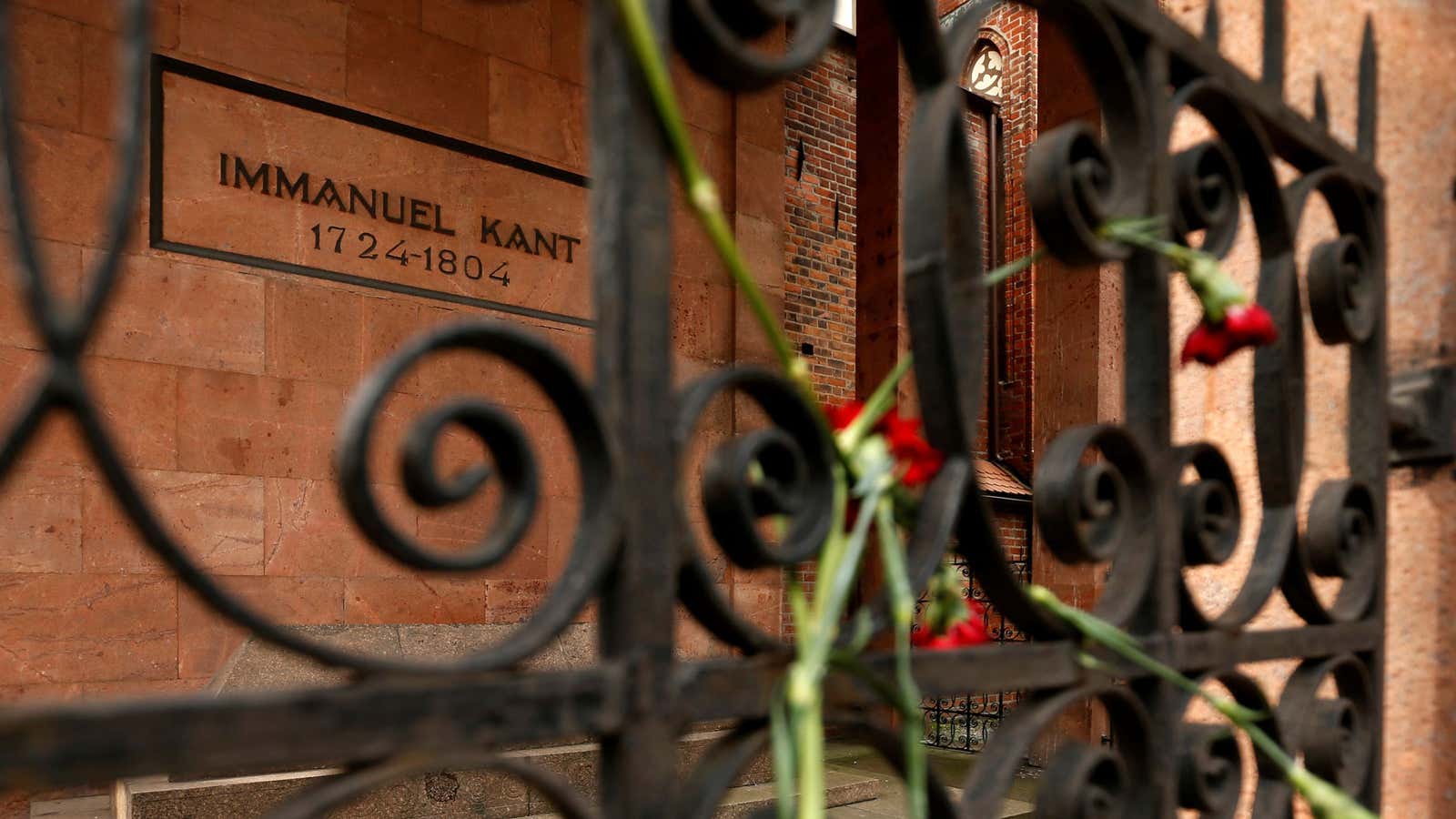The Russian city of Kaliningrad is in the midst of a heated debate. Paint has been thrown, protests and counter-protests have been staged, and a vice-admiral has issued a stern warning to his sailors to take his side in the conflict—which is about the 18th-century philosopher Immanuel Kant.
Many in the city are furiously rejecting a proposal to rename the local airport (currently called Khrabrovo) after the philosopher, according to news agency Agence France-Presse. Kant is widely heralded as one of the great moral philosophers in human history, but certain Kaliningrad officials are thoroughly unimpressed. “He wrote some incomprehensible books that no one standing here has read and never will read,” said Russian Navy vice-admiral Igor Mukhametshin in an anti-Kant rant to his sailors, that has since been widely viewed on YouTube.
There are philosophical grounds to objecting to Kant: The German philosopher argued that an action is moral if it adheres to the “categorical imperative,” meaning that it could become a universal law, such that everyone would act accordingly all the time. Utilitarian philosophy, which argues that an action is moral if the consequences of an act are good, rather than if the act itself is good, is directly opposed to Kant’s view. Perhaps, then, the city of Kaliningrad are die-hard utilitarians?
Unfortunately, much of the Kantian animosity seems to be for a far more prosaic reason, and stems from a perception that the German philosopher disrespected Russia. Kant was born in 1724 in the what was then the Prussian city of Königsberg, which was renamed Kaliningrad after the Soviet Union took control following World War II. Russian troops also controlled the city for five years during Kant’s lifetime, during the Seven Years’ War, when they captured Eastern Prussia in 1758. That year, Kant was eyeing a job as chair of logic and metaphysics at the University of Königsberg and wrote to Elisabeth, Empress of Russia, in his effort to gain the role. But he ultimately lost out to mathematics professor (and fellow Königsberger) Friedrich Johann Buck.
Or, in the words of Mukhametshin: “He humiliated himself and on his hands and knees begged to be given a department at the university.”
Kant was, until recently, the leading candidate in an online poll organized by several state bodies, including the Federal Public Chamber and Russian Historical Society, asking the public what to rename the local airport, but has slid considerably in the rankings in the past few days. Last week, anti-Kant Kaliningrad residents threw paint at his tomb, a statue of Kant, and a memorial plaque where his house once stood. Flyers left around the monument proclaimed that “the name of the German Kant will not tarnish our airport.” Meanwhile, others in Kaliningrad are pushing back against the anti-Kant narrative. For example, a group organized a small picket in support of the philosopher near his tomb on Sunday.
Around the world, Kant is celebrated for his groundbreaking philosophy. But, to the citizens of Kaliningrad, it seems, he’s just a local guy who wrote some abstruse books. Reinventing moral philosophy—no big deal. Definitely not worthy of getting your name on the airport.
